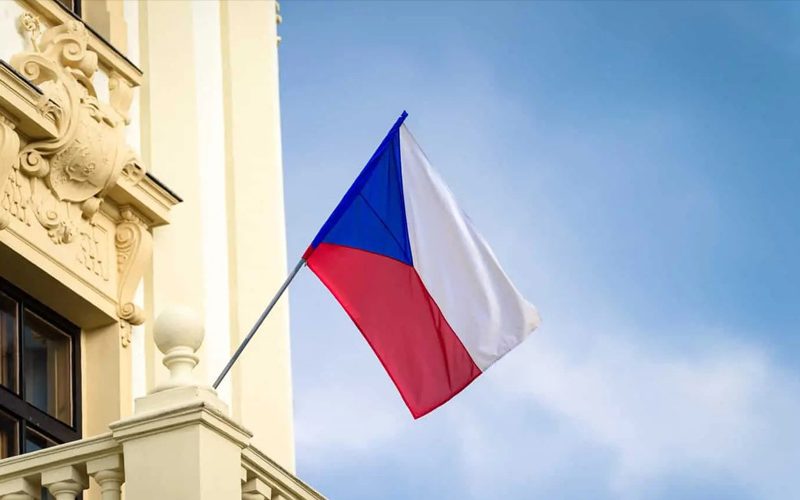From Tax Breaks to ETFs: How Nations Are Embracing the Crypto Economy
The Czech Republic has taken a significant step to foster digital asset adoption with a new law that exempts capital gains taxes for cryptocurrencies held for at least three years. Passed by the Chamber of Deputies, this legislation aligns with the European Union’s Markets in Crypto Assets (MiCA) framework. Prime Minister Petr Fiala highlighted the bill as a move toward simplifying taxation while promoting modern technology in the country.
Under the new law, Czech citizens no longer need to report digital asset transactions in their tax filings if the total amount transacted annually is under 100,000 koruna ($4,200). This provision encourages small-scale crypto transactions, making everyday uses like buying coffee with Bitcoin tax-free. By removing such transactional hurdles, the government aims to make digital assets more accessible and practical.
The local digital asset community has welcomed the reforms, anticipating increased adoption across the Central European nation. However, the legislation’s dual approach has sparked debate. While the tax exemption for long-term holdings incentivizes investors to “hodl” their assets, the raised transaction thresholds aim to encourage digital asset payments. Critics argue that this dual focus might conflict, as it pushes users toward speculative holding rather than fostering everyday usage.
Global Comparisons Highlight Similar Efforts
The Czech Republic’s reforms mirror global efforts to create a coherent framework for digital asset taxation. For instance, Russia recently reclassified digital assets as property, replacing value-added tax (VAT) with income tax. Earnings below $22,400 are taxed at 13%, while higher amounts face a 15% rate. Similarly, South Korea has proposed increasing its crypto tax threshold to $36,000, aligning it with stock market standards. However, implementation has been postponed to 2027.
The Czech law’s alignment with MiCA has also drawn criticism. KPMG’s local subsidiary has pointed out that the law lacks a precise definition of digital assets and leaves critical aspects, such as determining the holding period, undefined. Such ambiguities could lead to inconsistencies in application, potentially limiting the law’s effectiveness.
9.Bolstering Financial Inclusion and Institutional Participation
Beyond tax reforms, the new Czech law prohibits banks from denying services to Virtual Asset Service Providers (VASPs). This measure addresses years of financial exclusion faced by the digital asset sector despite its growing integration into the broader financial system. By ensuring equitable access to banking services, the government seeks to legitimize and support the sector’s growth.
The Czech Republic has already made its mark in the global digital asset industry. Companies like Trezor, a leader in hardware wallets, underline the country’s technological expertise. The new legislation is expected to bolster such homegrown successes by providing a conducive environment for innovation and adoption.
Argentina Expands Access to Digital Asset ETFs
While the Czech Republic focuses on taxation and regulation, Argentina has introduced measures to expand investment options in the digital asset space. The National Securities Commission (CNV) has approved the issuance of CEDEARs tied to ETFs tracking cryptocurrencies, gold, and global stock indices. This move allows local investors to indirectly access foreign digital asset markets without requiring offshore accounts.
CEDEARs, or Certificados de Depósito Argentinos, function as local derivatives of foreign financial instruments. Two of the newly approved CEDEARs track U.S.-issued digital asset ETFs, while the others focus on gold, the Chinese stock market, and the S&P 500 index. CNV president Roberto Silva described the approvals as a significant milestone, elevating Argentina’s financial market standards to align with international practices.
The Global Push for Digital Asset ETFs
Digital asset ETFs have gained traction globally, with the U.S. leading the way. Bitcoin ETFs debuted in January, followed by Ether ETFs in July, collectively raising billions of dollars. However, these ETFs have also concentrated digital assets in the hands of financial giants like BlackRock, whose iBIT ETF alone controls $34 billion worth of Bitcoin.
Countries like Thailand and Hong Kong have launched similar products, though with limited success compared to the U.S. Meanwhile, Japan and South Korea remain cautious. Japan’s Financial Services Agency (FSA) has shown little interest in approving such ETFs, and South Korea has opted for a wait-and-watch approach.
The Way Forward for Digital Asset Regulation
The Czech Republic’s progressive tax reforms and Argentina’s ETF expansion highlight the global momentum toward formalizing digital asset frameworks. While each country’s approach reflects its unique financial ecosystem, common goals include fostering adoption, ensuring regulatory clarity, and integrating digital assets into mainstream financial systems.
Despite challenges such as regulatory ambiguities and market volatility, these developments signal a growing recognition of digital assets’ potential to reshape global finance. Whether through tax incentives, institutional participation, or expanded investment options, nations are laying the groundwork for a future where digital assets play a central role in economic growth and innovation.
